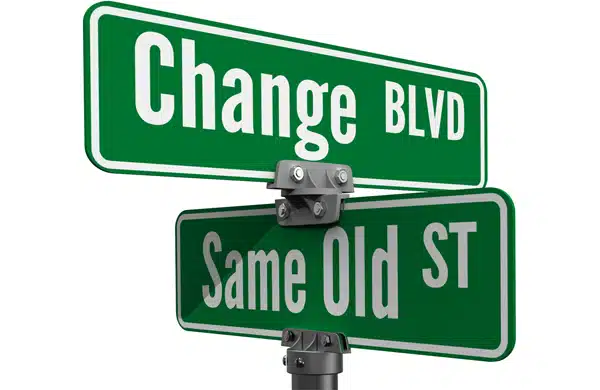Do you know how to improve yourself? Making changes can be very difficult and it certainly doesn’t happen overnight. We struggle, we have setbacks, we stand up and fall again. Finally, something clicks and the change we want begins to manifest. It’s almost like the universe has finally opened up to us and allowed us to succeed.
While this process of change can be very confusing and almost mysterious, psychologists have actually studied this phenomenon and created a blueprint for how change and personal growth work for most of us.
We call this the Process of Change.
The first stage is unconscious, where we are unaware that we even need to change. In the case of an alcoholic, for example, they wouldn’t even know they have a problem in this stage.
They are in denial.
Next, we begin to contemplate a change is needed, and we become aware that something different must happen. Psychologists call this stage contemplation.
I call it awareness.
Here the alcoholic starts to become aware that his or her drinking is having a negative impact on their life. Maybe their missing work or losing friendships. But awareness doesn’t mean change is coming. It simply means that it the idea a change is needed is now conscious.

The next stage is the action stage, where changes are manifested through active behavior, like going to therapy, going to the gym, applying to graduate school etc.. The alcoholic, in our example, now learns about AA and checks out a meeting.
But the action is not always successful right away. Without a strong belief in the change, the action is meaningless. I call this the Why?
We really need to know why we are doing something for the action to take hold. The why could be losing a relationship, losing a job or losing one’s health. With support and community, a belief that change is needed matures to match the action.
The alcoholic has bottomed out and no longer feels embarrassed to attend the AA meeting or complains that others in AA are ‘”not like him.” He or she starts to talk in the AA meetings, gets
I call this habit formation.
This is when you feel ownership over the process and can even begin to coach others (or sponsor someone) in their own behavior change. The longer the maintenance stage before a relapse the better the chance of life long change. Relapses happen. But if the cycle of change has progressed, it becomes easier to get back on the wagon.
So the next time you become aware that change is needed, have compassion for yourself and know that true lifelong change doesn’t happen overnight.
There is a process that we all must go through to how to improve yourself.: awareness, action, habit.
Good luck on your journey.
For more links on changing through the Sachs Center, click here.
For more about how to improve yourself, check out this video.